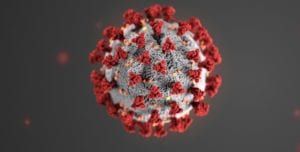
A friend of sinners
Jesus is a Friend of sinners. The Gospel of Luke tells us that He was criticized by the scribes and the Pharisees for eating with sinners (Luke 15:2); they called Him “a glutton and a drunkard, a friend of tax collectors and sinners!” (Luke 7:34). But for those of us who consider ourselves as sinners, it is quite comforting to think of Jesus as a friend. On the other hand, the thought that Jesus will always be there for us no matter how badly we behave or treat others can result in the grave mistake of ignoring His true message of repentance to sinners. We must pay careful attention to the ways in which Jesus was a friend to sinners in the Gospels.
- Jesus calls Matthew the tax collector to become one of His disciples (Matthew 9:9-13; Mark 2:13-17; Luke 5:27-32) – Matthew leaves everything behind and follows Christ.
- Jesus was anointed by a sinful woman (Luke 7:36-50) – The woman anoints Jesus with expensive ointment and wipes Jesus’ feet with her tears and the hair of her head. Jesus forgives the woman her sins.
- Jesus enters the house of Zacchaeus (Luke 19:1-10) – Zacchaeus repents and gives half of his possessions to the poor, and he repays the people he had extorted four times over.
- Jesus forgives the woman caught in adultery (John 8:1-11) – after the woman’s accusers had left, Jesus spoke to the woman: “Woman, where are they? Has no one condemned you?” She replied, “No one, sir.” Then Jesus said, “Neither do I condemn you. Go, [and] from now on do not sin anymore.”
In addition to the four examples above, the story of the Samaritan woman in the Gospel of John (John 4:4-42) is a great example of how Jesus was a friend to sinners. Carefully consider the dialogue between them. Jesus began the conversation by asking the woman for a drink of water. The conversation develops into a discussion of “living water”, until Jesus tells the woman to go and call her husband. The woman says she has no husband, and Jesus replies that she had five husbands, and the one she has now is not her husband. Their conversation continues with worship in spirit and truth, and concludes with Jesus revealing to the woman that He is the Messiah. The end result was that many of the Samaritans began to believe in Him. The Samaritan woman was a sinner who came to know Jesus the Messiah.
We can see from these Gospel passages that Jesus drew sinners to Himself; He approached sinners with kindness and mercy. He forgave those who repented, and He renewed the lives of those who believed in Him. Jesus was a friend of sinners not because He ignored sin, or condoned their sinful behavior. Jesus was and is a true friend of sinners because He saves them.

Directives from the Archdiocese of Atlanta regarding precautions against the Coronavirus:
- Holy Mass – From Bishop Joel Konzen: “Recognizing the grave cause of the current public health emergency, I dispense all the Catholic faithful of the Archdiocese of Atlanta and all Catholics currently in the Archdiocese of Atlanta from the obligation of attending Sunday Mass for the weekends of March 14-15; 21-22; and 28-29.”
Note: Masses will still be held at the regular schedule for those who wish to attend Mass. If you are sick, or are caring for someone who is sick or vulnerable, or if you are not comfortable coming to Mass, stay at home and pray for our church, our community, and all who are affected by the virus. Fellowship meals after Sunday Mass for March 15, 22 and 29 have been cancelled.
- Visits to the homebound – Visits to the homebound and elderly should be discontinued for the time being. This includes visits to healthcare, nursing, and assisted living facilities. Pastors should consider pastoral needs and use common sense in approaching cases of extreme need or grave illness.
- Large gatherings and events – Neither the CDC nor Georgia Department of Public Health has issued any advice against large gatherings as of the afternoon of March 12. The Archdiocese of Atlanta will continue to monitor these agencies, as should parishes and schools. It would be wise to remind people in the high risk group that they should carefully consider attending any large group or public events at this time. They should consider local exposure and infection rates as well as their own health status.